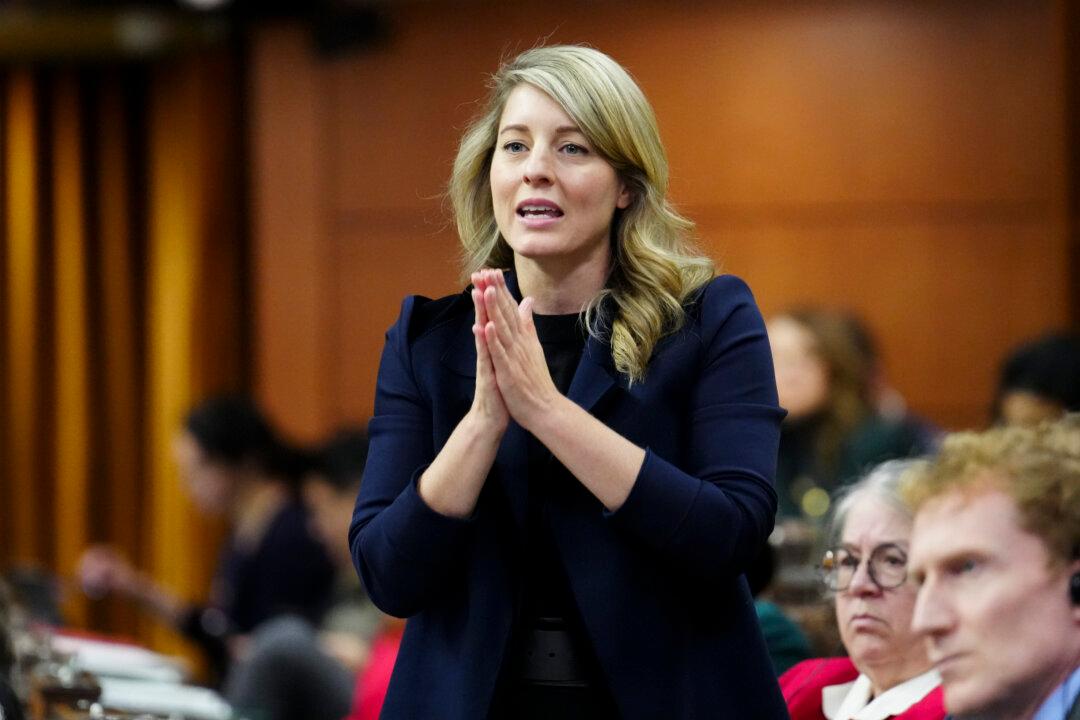Foreign Minister Mélanie Joly held her first formal talk with Chinese Foreign Minister Wang Yi in more than a year and a half amid heightened attention to Chinese interference in Canada.
The ministers covered a broad range of international and regional issues during their talk, Global Affairs Canada (GAC) said in a Jan. 11 press release. Topics included the Israel–Hamas conflict, Russia’s invasion of Ukraine, and ongoing challenges in the Indo-Pacific region.





